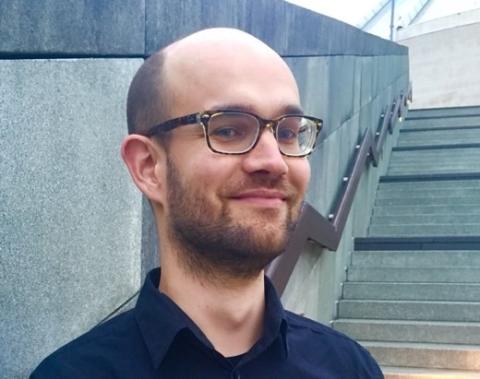Sander Verhaegh
Assistant professor philosophy of science at the Tilburg Center for Logic, Ethics and Philosophy of Science (TiLPS).
Can you introduce yourself?
Sure! My name is Sander Verhaegh and I am an assistant professor philosophy of science at the Tilburg Center for Logic, Ethics and Philosophy of Science (TiLPS). In my research, I am mostly interested in the development of science and philosophy in the first half of the twentieth century. This is an interesting period because many of our current preconceptions and disciplinary barriers originate in this period.

Psychologists and philosophers, for example, often forget that the distinction between their fields is relatively recent. At Harvard University, for instance, philosophers and psychologists were part of the same department until the late 1930s. In my NWO Veni project, I reconstruct how philosophers and experimental psychologists were influencing each other in the first decades of the twentieth century and how much this changed when the two started to become separate fields.
Research and education are two important pillars of academia. What do they mean to you?
Both are important! I mostly teach philosophy of science to non-philosophy students (e.g. sociologists, economists, and psychologists). Most of these students have never encountered philosophy before so I always see it as a great privilege to be the first the introduce them to philosophical questions and arguments. I often start the course with a poll asking them about the first words that come to mind when they think about philosophy. Perhaps not surprisingly, many of them expect philosophy to be ‘vague’, ‘speculative’, or ‘spiritual’. It is really rewarding to see some of the students discover that philosophy can actually be very relevant in thinking about the foundations of their disciplines.
You are now one of the initial members of the TYA. How is that like?
I believe it is important that young academics have a voice. Early-career teachers and researchers often have a temporary contract, a heavy teaching load, and they are under a lot of pressure to take on administrative tasks, to join all kinds of committees, and, on top of that, to acquire external funding. And because they are not well represented in management positions, there is not enough attention for their well-being and career prospects. The Tilburg Young Academy aims change this and to represent the interests of these early-career scholars at the school and university level. We have just started, but so far it has been very interesting to help thinking about ways to improve academic life for young scholars.
I am sure you all have topics that are important to you. What is your main focus in the TYA?
I think work pressure is one of the most important topics. Although universities are structurally underfunded, there is much Tilburg University can do to improve the work situation for its youngest members of staff: fewer temporary contracts, clear and realistic tenure criteria, and shorter semesters. I am happy therefore that the board has been taking some important steps toward implementing the new Recognition and Rewards agenda and that they have been listening to our advice in doing so. We are still a small group, and there is much to do, but we aim to grow to twenty-four members in the next few years. I would like to encourage all young academics to apply. It is a fun group and it is interesting to meet people from different schools.
